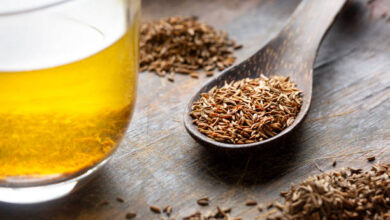fitness and nutrition tips tailored to men’s need
fitness and nutrition tips tailored to men's need

Achieving and maintaining optimal health and fitness is a journey that requires a combination of strategic workouts and a balanced diet. For men, in particular, understanding the unique physiological and nutritional needs is crucial to unlocking peak performance. In this comprehensive guide, we will delve into the key aspects of men’s fitness and nutrition, providing tailored tips to help you reach your health and wellness goals.

Section 1: Understanding Men’s Fitness Goals
- Muscle Building: Men often have a primary focus on building muscle mass. To achieve this goal, it’s crucial to engage in resistance training exercises that target major muscle groups. Compound movements like squats, deadlifts, and bench presses should be staples in any muscle-building routine.
- Endurance and Cardiovascular Health: While muscle building is a common goal, maintaining cardiovascular health is equally important. Incorporating cardiovascular exercises, such as running, cycling, or swimming, helps improve endurance, boost heart health, and aid in overall fitness.
- Weight Management: Men often face challenges related to weight management, whether it’s shedding excess pounds or maintaining a healthy weight. A combination of proper nutrition and regular exercise is key to achieving and sustaining an ideal weight.
Section 2: Tailored Fitness Tips for Men
- Strength Training: Prioritize compound exercises that engage multiple muscle groups simultaneously. This not only promotes efficient muscle development but also enhances overall strength. Aim for progressive overload by gradually increasing weights to stimulate continuous muscle growth.
- Cardiovascular Exercise: Include both high-intensity interval training (HIIT) and steady-state cardio in your workout routine. HIIT sessions can help burn fat and improve cardiovascular fitness, while steady-state cardio provides sustained calorie burning and promotes heart health.
- Flexibility and Mobility: Don’t neglect flexibility and mobility exercises. Incorporate stretching and yoga into your routine to improve joint health, prevent injuries, and enhance overall flexibility.
- Rest and Recovery: Adequate rest is crucial for muscle recovery and overall well-being. Ensure you get enough sleep each night and consider incorporating rest days into your weekly routine to allow your body to recover and prevent burnout.

Section 3: Understanding Men’s Physiological Differences
Men and women have distinct physiological differences that influence their fitness needs. Men generally possess higher levels of testosterone, a hormone that plays a significant role in muscle development. This hormonal advantage can be harnessed through tailored workout routines and nutritional choices.
Incorporate Strength Training
Given the higher testosterone levels, men can benefit significantly from incorporating strength training into their fitness regimen. Compound exercises such as squats, deadlifts, and bench presses engage multiple muscle groups, promoting overall strength and muscle growth.
Prioritize Cardiovascular Health
While strength training is essential, cardiovascular health should not be neglected. Regular aerobic exercise, such as running, cycling, or swimming, helps improve heart health, endurance, and overall fitness. Aim for at least 150 minutes of moderate-intensity cardio per week.
Section 4: Tailored Nutrition Tips for Men:
- Protein Intake: Protein is essential for muscle repair and growth. Incorporate lean protein sources such as chicken, fish, lean beef, eggs, and plant-based options like tofu and legumes into your diet. Aim for a protein-rich meal within an hour of your workout to optimize muscle recovery.
- Caloric Surplus for Muscle Building: If muscle building is a primary goal, ensure you are in a caloric surplus. Consume more calories than your body burns to provide the necessary energy for muscle growth. However, prioritize nutrient-dense foods to avoid excessive fat gain.
- Balanced Macronutrients: Maintain a balance of macronutrients—protein, carbohydrates, and fats. Carbohydrates provide energy for workouts, while healthy fats support hormone production and overall health. Adjust the ratio based on your specific goals and body type.
- Hydration: Stay adequately hydrated to support overall health and optimize exercise performance. Water is essential for digestion, nutrient absorption, and temperature regulation. Consume at least eight glasses of water daily, and adjust intake based on activity levels.

Section 5: Tailoring Nutrition to Men’s Needs
Nutrition plays a pivotal role in achieving fitness goals. Men often require a specific balance of macronutrients and micronutrients to support muscle growth, energy levels, and overall well-being.
Optimal Protein Intake
Protein is crucial for muscle repair and growth, making it a cornerstone of men’s nutrition. Aim for a protein intake of 1.2 to 2.2 grams per kilogram of body weight. Sources such as lean meats, fish, eggs, and plant-based options like beans and lentils can provide the necessary protein.
Embrace Healthy Fats
Contrary to the misconception that all fats are harmful, healthy fats are essential for hormone production and overall health. Include sources of omega-3 fatty acids, such as fatty fish, flaxseeds, and walnuts, to support brain function and reduce inflammation.
Carbohydrates for Energy
Carbohydrates are the body’s primary energy source, and men engaged in regular physical activity require an ample supply. Opt for complex carbohydrates like whole grains, fruits, and vegetables to sustain energy levels and promote better workout performance.

Section 6: Customizing Your Fitness Routine
Every individual is unique, and a one-size-fits-all approach to fitness may not yield the best results. Customizing your workout routine based on your fitness level, goals, and preferences is essential.
Set Realistic Goals
Define clear, realistic fitness goals to stay motivated and focused. Whether it’s increasing muscle mass, improving cardiovascular health, or enhancing flexibility, having specific objectives will guide your workout routine and nutrition plan.
Mix Up Your Workouts
To prevent plateaus and keep things interesting, vary your workout routine. Incorporate a mix of strength training, cardio, and flexibility exercises. This not only challenges different muscle groups but also reduces the risk of overuse injuries.

Section 7: Prioritizing Recovery
In the quest for optimal fitness, recovery is often overlooked. However, giving your body the time and resources it needs to recover is crucial for long-term success.
Quality Sleep Matters
Quality sleep is essential for overall health and recovery. Aim for 7-9 hours of uninterrupted sleep each night to allow your body to repair and regenerate. Poor sleep can hinder muscle recovery and negatively impact hormonal balance.
Incorporate Rest Days
Overtraining can lead to burnout, fatigue, and increased risk of injuries. Schedule regular rest days to allow your muscles to recover. Active recovery activities like yoga or light stretching can help promote blood flow without putting additional stress on the body.

Section 8: Lifestyle Considerations:
- Stress Management: Chronic stress can negatively impact fitness goals. Incorporate stress-reducing activities such as meditation, deep breathing exercises, or hobbies into your routine to maintain mental and emotional well-being.
- Regular Health Check-ups: Schedule regular health check-ups to monitor your overall health. Addressing any underlying health issues promptly can prevent setbacks in your fitness journey.
Conclusion
Achieving and maintaining peak fitness requires a holistic approach that considers both exercise and nutrition. By understanding and tailoring your fitness routine and dietary choices to meet the unique needs of men, you can unlock your full potential and enjoy lasting health and well-being. Remember, consistency is key, and making sustainable lifestyle changes will contribute to long-term success on your fitness journey.





